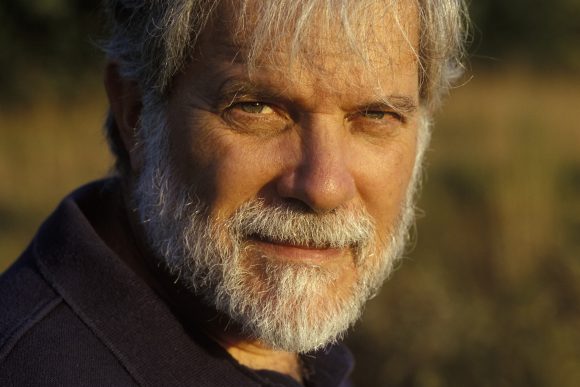
Steven Handel. Photo credit: Nick Romanenko.
Steven Handel, Distinguished Professor Emeritus of Ecology and Evolution, was awarded the American Society of Landscape Architecture (ASLA) LaGasse Medal, which recognizes “notable contributions by individuals to the management and conservancy of natural resources and/or public landscapes.”
A Rutgers faculty member for 36 years, Handel was among 16 individuals and two organizations recognized by ASLA as its 2023 National Honors Recipients, some of the most noteworthy landscape architecture practitioners and firms nationwide.
“The ASLA honorees are the best of the best and represent what is possible in the field of landscape architecture. This is the highest recognition ASLA bestows each year,” said ASLA President Emily O’Mahoney. “This year’s recipients join a rarified group; we celebrate and congratulate another standout class of honorees on their well-earned recognition.”
“I’m so grateful to the ASLA for this high award, previously given to people like United States Secretaries of the Interior and other leading public officials,” said Handel, who won in the non-landscape professional category.
Catherine Seavitt Nordenson, professor and director of the Master of Landscape Architecture program at the City College of New York, nominated Handel for the prestigious LaGasse Medal.
“We landscape architects traffic in both seeds and systems—our ecologist friend, Dr. Steven N. Handel, has been an invaluable collaborator in our investigations, and his commitment to biodiversity has deeply enriched our work as both teachers and practitioners. Dr. Handel is a most deserving recipient of the 2023 ASLA LaGasse Medal, a significant recognition honoring his many decades of work in natural resource conservation through habitat restoration as well as his support of new design initiatives for public landscapes,” said Seavitt Nordenson, who, as of July 1, joins the faculty of the Weitzman School at the University of Pennsylvania as a tenured professor and chair of the Department of Landscape Architecture.
According to Handel, “I’ve always loved plants and that’s been the center of my research and work all these years, but I realized that to improve cities’ biodiversity I had to work with landscape architects. They are the ones that have the training and license to actually draw blueprints. I’ve collaborated with leading landscape architects across the United States, and it has been a joy.”
“To me, this award shows the great value of collaboration among professions and the importance of scientists to be involved with public policy and the improvement of our cities’ natural resources. So many of the SEBS programs advance these critical needs! I am also so proud that many of my former graduate students are now working to improve our nation’s natural resources as well as doing scientific research,” added Handel.
Handel’s research has focused on the restoration of native plant communities, adding sustainable ecological services, biodiversity, and amenities to the landscape.
He came to Rutgers in 1985 after being a biology professor and director of the Marsh Botanic Garden at Yale University. He also was a Visiting Professor of Ecology at Harvard’s Graduate School of Design for four years, teaching ecological principles to Landscape Architecture students.
Handel is a Fellow of the Ecological Society of America and the American Association for the Advancement of Science, and is the Editor of the professional journal, Ecological Restoration. In 2007, he was elected an Honorary Member of ASLA for “achievements of national significance to the profession.” He received the Society for Ecological Restoration’s highest research honor, the Theodore M. Sperry Award “for pioneering work in the restoration of urban areas.”
He received a bachelor’s degree in Ecology from Columbia, and master’s and doctoral degrees in Ecology from Cornell.

